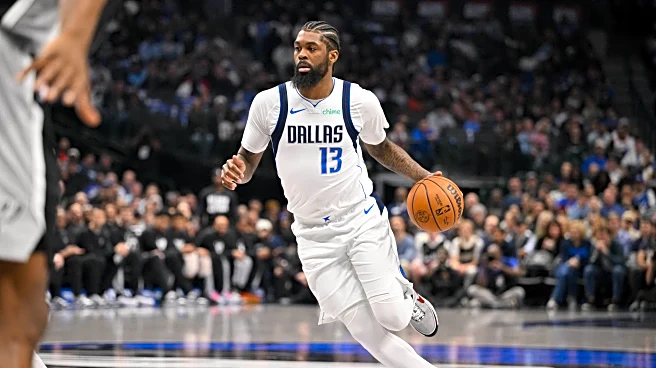What's Happening?
The Boston Red Sox have faced challenges in developing a frontline starting pitcher since Jon Lester, who was drafted in 2002 and became a key player for the team. Despite numerous attempts, the Red Sox have not successfully developed a pitcher of Lester's caliber in nearly two decades. The article highlights several pitchers drafted by the Red Sox who were expected to fill this role but ultimately did not meet expectations. These include Henry Owens, Michael Kopech, and others who either transitioned to relief roles or faced career setbacks due to injuries or performance issues. The latest prospect, Payton Tolle, shows promise, but the history of past prospects casts doubt on the likelihood of success.
Why It's Important?
The inability to develop a frontline pitcher impacts the Red Sox's competitive edge and long-term planning. A homegrown ace can provide stability and cost-effectiveness, allowing the team to allocate resources elsewhere. The Red Sox's struggles in this area may affect their performance in the highly competitive American League East, where pitching depth is crucial. Additionally, the team's reliance on trades and free agency to fill pitching gaps can lead to increased financial burdens and less flexibility in building a balanced roster. The success of Payton Tolle and other prospects could significantly influence the team's future strategy and success.
What's Next?
The Red Sox will continue to monitor and develop their current pitching prospects, including Payton Tolle, who has shown potential in his first professional season. The team may also explore trades or free-agent signings to bolster their pitching staff in the short term. The development of Tolle and other young pitchers will be crucial in determining the team's strategy moving forward. If these prospects can break the trend and establish themselves as reliable starters, it could mark a turning point for the Red Sox's pitching development program.
Beyond the Headlines
The Red Sox's struggles highlight broader issues in player development and scouting. The team's inability to produce a frontline starter since Lester may prompt a reevaluation of their development strategies and scouting processes. This situation also underscores the challenges teams face in balancing immediate success with long-term player development. The Red Sox's experience may serve as a case study for other teams aiming to improve their player development systems.











